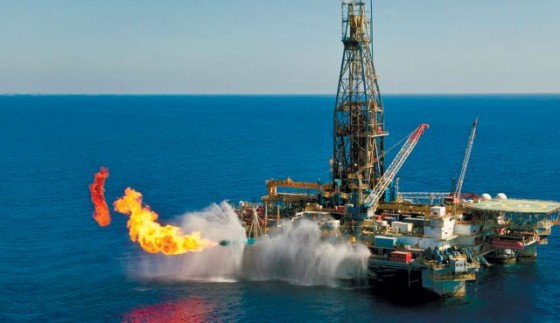 The Zorlu Group, one of Turkey’s biggest business conglomerates, has its eyes on another behemoth: Israel’s largest gas field, the Leviathan.
The Zorlu Group, one of Turkey’s biggest business conglomerates, has its eyes on another behemoth: Israel’s largest gas field, the Leviathan.
Under a new plan proposed by Zorlu, an undersea pipeline would deliver 8-10 billion cubic meters of natural gas each year from the Leviathan, 130 kilometers west of Haifa, to Turkey’s southern coast, reports Haaretz. The plan makes sense for Zorlu, one of Turkey’s biggest gas consumers, and for Leviathan’s partners, for whom this is the most profitable way to sell Levithan’s output. But will tense relations between the two countries allow the deal to proceed?
Troubled history
Ironically, the governments of Turkey and Israel have fallen out in recent years partly due to disputes over rights to natural gas deposits in the Mediterranean.
Israel has typically sided with Greece and Cyprus on gas drilling projects that excluded The Republic of Northern Cyprus (TRNC): a country whose sovereignty only Turkey recognizes. Other international events, such as the Mavi Marmara incident, have further soured relations between Israel and Turkey.
The Leviathan gas field contains approximately 425 billion cubic meters of gas. Leviathan’s partners say Israel’s gas needs are more than covered by the Tamar field, so there won’t be any shortages.
When Leviathan’s gas field partners first broached the idea of building a pipeline to Turkey, it was shelved in favor of plans to export to more friendly countries, such as Greece or China. But Greece’s buying potential has been slashed by the economic crisis there, and China is only in the market for liquefied natural gas (LNG), which wouldn’t be as profitable for the Leviathan operators.
Ramifications of the new pipeline
If Turkey and Israel can put aside their grudges, the pipeline would seem to be a win-win for both countries.
But building the pipeline may create new diplomatic rifts of its own. It would have to pass through Lebanese and Syrian economic zones, and would pose a challenge to Russia’s Gazprom, currently the dominant gas exporter to Turkey and Europe.
Discussions over the pipeline continue between the foreign ministries of Israel and Turkey. Regardless of the outcome, the news is yet another reminder of how dirty fuels such as oil and gas can hamper the economic and diplomatic progress of a country.
Some countries are forced to use these fuels. But for Turkey, which has abundant renewable resources of its own, the tensions caused by hydrocarbon production and trading are completely avoidable.
:: Haaretz
Read more about energy politics in Turkey:
Turkey Ripe For Renewable Energy Boom — So Why the Delay?
Turkey’s Economic Growth Hampered By Oil Addiction, Analysts Say
Natural Gas Creating New Axes Of Alliance Across the Mediterranean
Image via Haaretz




Comments are closed.